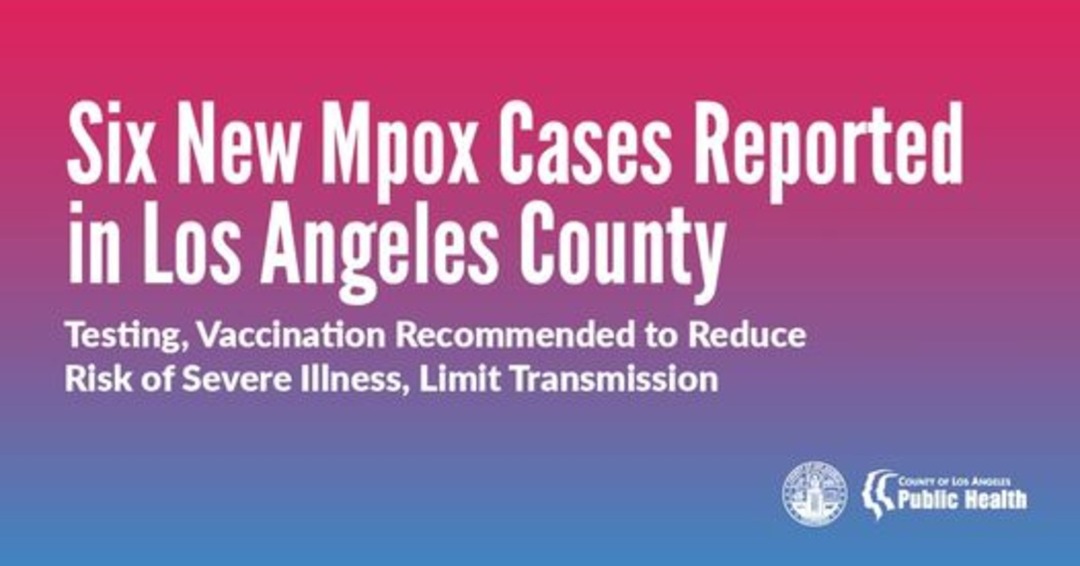Six New Cases Reported in a Week, Which Is a Notable Increase
The Los Angeles County Department of Public Health (Public Health) has notified residents and healthcare providers about a troubling increase in Mpox cases. Six new cases have been reported in Los Angeles County in the past week, marking a significant rise from an average of fewer than one case per week in the previous four weeks. For the most up-to-date information and resources, please visit ph.lacounty.gov/mpox or contact the Public Health Call Center at 1-833-540-0473.
Mpox, previously known as Monkeypox, primarily spreads through close contact with body fluids, sores, shared bedding or clothing, or respiratory droplets, such as kissing, coughing, or sneezing. Symptoms include the appearance of a rash or unusual sores resembling pimples or blisters on the face, body, and genitals, accompanied by fever, chills, headache, muscle aches, or swelling of lymph nodes. Early detection, testing, and vaccination are crucial in controlling the spread of this disease and safeguarding the health of Los Angeles County residents. Given the recent surge in cases, Public Health strongly recommends the following measures: Testing: Individuals who experience symptoms consistent with Mpox, such as rash, fever, or swollen lymph nodes, should promptly seek medical attention and undergo testing. Healthcare providers should be mindful of the possibility of mpox and report suspected cases to Public Health for appropriate testing and interventions.
These are the most up-to-date numbers on Mpox infections and confirmed cases in Los Angeles County.
Total Mpox / Orthopox Confirmed Cases
2,469*
*includes Long Beach and Pasadena
| Los Angeles County (excl. Long Beach and Pasadena) | 2,312 |
| Long Beach | 127 |
| Pasadena | 30 |
Vaccination: Mpox vaccination not only reduces the risk of severe illness but also helps to limit transmission. The vaccine is available to everyone, with special emphasis on the following subgroups:
- Men or transgender individuals who engage in sexual activity with other men or transgender individuals.
- Individuals of any gender or sexual orientation who engage in sex or intimate physical contact during large public events or partake in commercial and/or transactional sex.
- Individuals living with HIV, particularly those with uncontrolled or advanced HIV disease.
- Sexual partners of people in any of the above groups.
Individuals in high-risk categories are strongly encouraged to complete the full vaccination regimen of two doses for optimal protection. The second dose can be administered regardless of the time elapsed since the first dose. Residents may choose to receive the mpox vaccine subcutaneously (in the upper arm) or intradermally (under the skin on the arm or back). Currently, booster doses are not recommended.
Public Health is actively collaborating with healthcare providers, community organizations, and other stakeholders to promptly and effectively address the resurgence of mpox. Enhanced surveillance, contact tracing, and outbreak investigations are underway to identify potential sources of infection and prevent further transmission. Public Health’s mobile vaccination units are offering free vaccinations at various Pride events this season, and additional walk-up vaccine clinics can be found at https://myturn.ca.gov/.






















